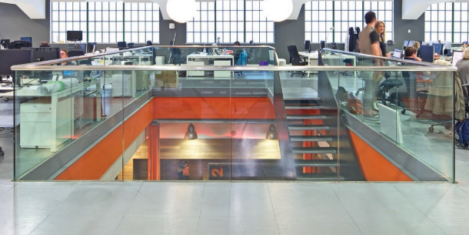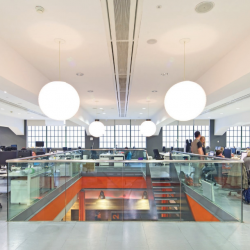To provide the best experiences, we use technologies like cookies to store and/or access device information. Consenting to these technologies will allow us to process data such as browsing behaviour or unique IDs on this site. Not consenting or withdrawing consent, may adversely affect certain features and functions.
The technical storage or access is strictly necessary for the legitimate purpose of enabling the use of a specific service explicitly requested by the subscriber or user, or for the sole purpose of carrying out the transmission of a communication over an electronic communications network.
The technical storage or access is necessary for the legitimate purpose of storing preferences that are not requested by the subscriber or user.
The technical storage or access that is used exclusively for statistical purposes.
The technical storage or access that is used exclusively for anonymous statistical purposes. Without a subpoena, voluntary compliance on the part of your Internet Service Provider, or additional records from a third party, information stored or retrieved for this purpose alone cannot usually be used to identify you.
The technical storage or access is required to create user profiles to send advertising, or to track the user on a website or across several websites for similar marketing purposes.
 Ninety percent of global businesses struggle with inclusion and diversity practices within their technology/ IT teams according to ‘The key to designing inclusive tech: creating diverse and inclusive tech teams’ report by the Capgemini Research Institute. More →
Ninety percent of global businesses struggle with inclusion and diversity practices within their technology/ IT teams according to ‘The key to designing inclusive tech: creating diverse and inclusive tech teams’ report by the Capgemini Research Institute. More →





 In the past, Human Resources Information System (HRIS) software was largely created with the needs of HR professionals and system administrators in mind. The future of HRIS however, is an employee-centric system which has been come to be known as an
In the past, Human Resources Information System (HRIS) software was largely created with the needs of HR professionals and system administrators in mind. The future of HRIS however, is an employee-centric system which has been come to be known as an 


 Organisational purpose, responsible business practices and diversity are growing in importance at Board level and for HR teams, as employers make the connection between good environmental, societal and governance practices and business growth, according to survey findings from the Reward & Employee Benefits Association (
Organisational purpose, responsible business practices and diversity are growing in importance at Board level and for HR teams, as employers make the connection between good environmental, societal and governance practices and business growth, according to survey findings from the Reward & Employee Benefits Association (


 HR leaders trying to navigate a rapidly changing workplace environment now have a clear set of objectives to focus on: digitisation, talent, and the future of work. That is the central finding of a new report by Boston Consulting Group (
HR leaders trying to navigate a rapidly changing workplace environment now have a clear set of objectives to focus on: digitisation, talent, and the future of work. That is the central finding of a new report by Boston Consulting Group (
 Amid news that the UK government is mulling plans to grant Brits the right to work from home permanently, a new
Amid news that the UK government is mulling plans to grant Brits the right to work from home permanently, a new 
 Almost every organisation now knows it must become more resilient as the economy emerges from the pandemic. As well as coping with crises and global events, organisations must excel in the face of the many less high-profile disruptions that hit an organisation – from supply chain bottlenecks to shifts in demand and sudden skills shortages. HR departments have a major role to play in this but to do so successfully requires a change of mindset, taking a step back from traditional administrative functions and reviewing the entire business as if they were an outsider.
Almost every organisation now knows it must become more resilient as the economy emerges from the pandemic. As well as coping with crises and global events, organisations must excel in the face of the many less high-profile disruptions that hit an organisation – from supply chain bottlenecks to shifts in demand and sudden skills shortages. HR departments have a major role to play in this but to do so successfully requires a change of mindset, taking a step back from traditional administrative functions and reviewing the entire business as if they were an outsider. 
 New research from
New research from 
 New research by
New research by 
 HR leaders, heads of real estate and IT decision-makers have not always spent huge amounts of time working together – their roles and responsibilities have often been siloed. But in the new world of work, that’s all changing. These three groups of senior leaders are being asked to collaborate on one of the biggest challenges corporate occupiers, as they try to figure out when and how to return to office-based working and shape the future of work. Failure to collaborate will increase the probability of workplaces having low occupancy rates, low employee engagement and decreased productivity.
HR leaders, heads of real estate and IT decision-makers have not always spent huge amounts of time working together – their roles and responsibilities have often been siloed. But in the new world of work, that’s all changing. These three groups of senior leaders are being asked to collaborate on one of the biggest challenges corporate occupiers, as they try to figure out when and how to return to office-based working and shape the future of work. Failure to collaborate will increase the probability of workplaces having low occupancy rates, low employee engagement and decreased productivity. 









July 6, 2021
Setting out the known unknowns about work
by Will Easton • Comment, Flexible working, Workplace design